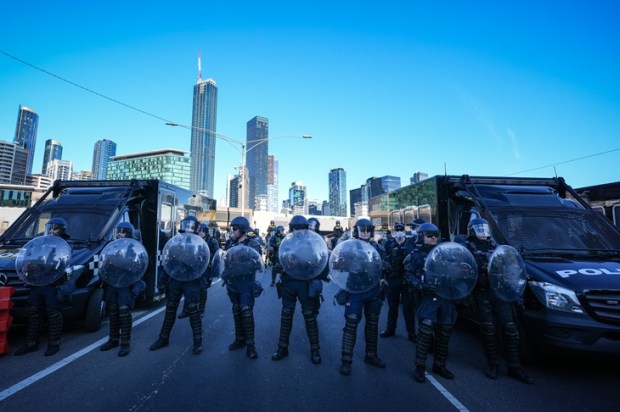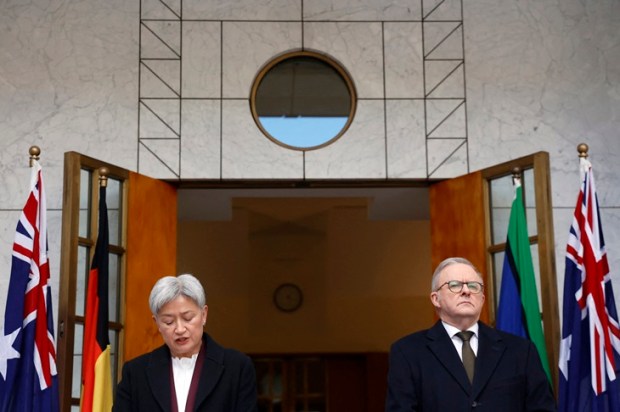China has decided to finish the year by antagonising Taiwan. Reports indicate that 71 planes and 7 military ships were sent by China toward the independent nation of Taiwan inside 24-hours between Sunday and Monday.
The aircraft, which included fighter jets and drones, deliberately violated the unofficial airspace boundary over the Taiwan strait.
An honour to preside over the promotions of our nation’s Army, Navy & Air Force generals @MoNDefense. I will always stand with our troops – the better prepared our military is, the better #Taiwan can deter threats to our security & democratic way of life. pic.twitter.com/fCODx696G7
— 蔡英文 Tsai Ing-wen (@iingwen) December 26, 2022
The ‘firm response’ (as quoted by PLA command) to the US Defense Spending Bill passed on Saturday – would otherwise be known as wholly inappropriate war-mongering if global leaders were not frightened of China’s economic hold over critical supply chains.
China’s official (and frankly unhinged) statement issued by the Ministry of Foreign Affairs of the People’s Republic of China read:
Despite China’s opposition, the US passed and signed into law the National Defense Authorization Act for Fiscal Year 2023, which contains negative content concerning China. China deplores and firmly opposes this US move, and has made serious démarches to the US.
This Act, in total disregard of facts, hypes up the “China threat” narrative, blatantly interferes in China’s internal affairs, and attacks and discredits the Communist Party of China (CPC). This is a serious political provocation against China. The leadership of the CPC is the choice of history and the people. The Chinese people are clear-eyed about the US’s ill intention of suppressing and containing China’s development and thwarting the Chinese nation’s rejuvenation. Attempts to drive a wedge between the Chinese people and the CPC will not succeed.
This Act also contains a large number of negative provisions on Taiwan which seriously violate the one-China principle and the stipulations in the three China-US Joint Communiqués. This sends a gravely wrong signal to “Taiwan independence” separatist forces and severely affects peace and stability across the Taiwan Strait. Taiwan is China’s Taiwan. No external interference in China’s internal affairs will be tolerated. The US needs to stop seeking to use Taiwan to contain China, stop fudging, distorting and hollowing out the one-China principle, and stop moving even further down the wrong and dangerous path.
We urge the US to earnestly follow through on the important common understandings reached between the two presidents in Bali, abandon the Cold-War and zero-sum mentality and ideological bias, adopt an objective and rational view of China’s development and China-US relations, and not to implement the negative China-related sections in the Act. China will take strong and resolute measures to firmly safeguard its sovereignty, security and development interests.
‘Taiwan is China’s Taiwan. No external interference in China’s internal affairs will be tolerated’ reads the delusional message from China. The existence of this statement both re-iterates and confirms Taiwan’s fears that they are in danger of being attacked by a regime that refuses to respect Taiwan sovereignty or the will of the people of Taiwan.
President Biden has many many flaws, but he has little choice but to take seriously China’s openly violent rhetoric when it comes to the future of its friend and critical trading partner, Taiwan. The Taiwan Relations Act of 1979, signed under President Carter, ensures ongoing support to Taiwan.
The Act states:
‘The United States will make available to Taiwan such defense articles and defense services in such quantity as may be necessary to enable Taiwan to maintain a sufficient self-defense capabilities […] shall maintain the capacity of the United States to resist any resort to force or other forms of coercion that would jeopardize the security, or social or economic system, of the people on Taiwan.’
Even without the Act, failing to defend Taiwan – and its critical position on Pacific trade for Australia, Japan, the Pacific Islands, New Zealand, Canada, and America – would prove catastrophic and essentially hand China military control over the Pacific region, Australia included.
Taiwan’s Foreign Ministry thanked US Congress for their ongoing support.
The dystopian future facing Taiwan should America abandon it would be similar to the ‘autonomous’ regions of Hong Kong, Tibet, and Xinjiang.
If China doesn’t appreciate the US Defence Spending Bill referring to China as a ‘strategic challenge’, the regime in Beijing could try cooling its heels on the ‘let’s invade Taiwan’ party line dragged out by President Xi Jinping whenever his ratings slip.
China might also consider ceasing its policy of deliberately forcing Taiwan out of the Pacific by making the cessation of trade a requirement of juicy loans, as happened with one of Taiwan’s loyal trading partners, the Solomon Islands.
Until China abandons its threats against Taiwan, it will have to tolerate the world side-eyeing Beijing with active concern.

























